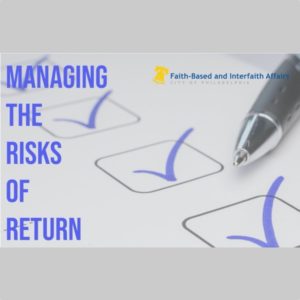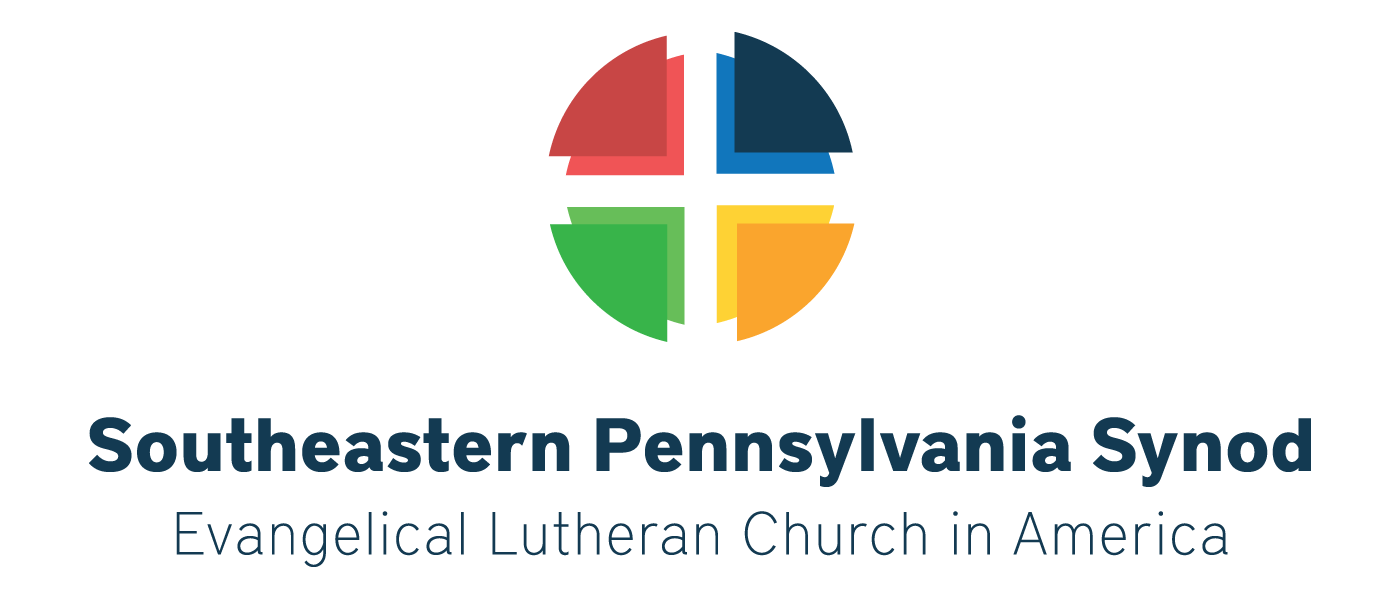July 13, 2020 in Public Health
Managing the Risks of Return

City Webinar Covers Legal Aspects of Reopening
In its’ ongoing conversation with Philadelphia faith leaders, the Mayor’s Office of Public Engagement offered an informative webinar last week discussing legal considerations when preparing to resume in-person worship and programming. (View video of the webinar and slide deck.) While the conversation focused on operations within the city, the principles may be useful to leaders across our Synod.
(Disclaimer: Neither this summary nor the webinar itself constitute legal advice or consultation. For specifics in your local context, consult your legal counsel.)
At present, the administration is requesting that churches in the city continue remote rather than in-person worship, noted the Rev. Naomi Washington-Leapheart, Director for Faith-Based and Interfaith Affairs. The city’s guidance calls for no more than 25 people, including staff/leaders, at any worship service or gathering, along with social distancing and wearing of masks.
Churches should consider the legal and financial implication of reopening, because “during traumatic times many people will want to hold accountable the people responsible” for transmission of COVID-19, Rev. Washington-Leapheart said. As a result, churches must enact proactive responses to crisis, disruptive, and grief.
There may be an “open season of litigation” if transmission is traced to churches, said Angella N. Middleton, an Associate at the firm of Saul Ewing Arnstein & Lehr. Middleton offered a general overview of legal issues related to re-opening.
Churches may be sued if someone has belief and some evidence that they contracted the virus there, she said. In Pennsylvania there is currently no immunity from litigation over COVID-19 for houses of worship. An exclusion exists only for healthcare providers who follow applicable guidelines.
While a plaintiff would have to prove that they did contract the virus in the church facility/event and some negligence on the part of the church, the congregation would have to prove that they took all reasonable precautions to prevent spread of the disease.
“The city guidelines are the gold standard to determine reasonableness,” Middleton said. In addition to limiting gathering size to 25 and the masking and distancing rules, the guidelines currently include no choirs or group singing, avoiding eating and drinking together (which eliminates coffee hour), and avoiding passing items hand to hand or hand to mouth (challenging for both offering and distribution of Holy Communion). The guidelines encourage congregations to provide masks for anyone who enters without them.
If reasonableness is your defense, it may be challenging to say that you have abided by ALL of the guidance, Middleton said.
In Pennsylvania, congregations are required to carry Worker’s Compensation Insurance on employees. While this insurance is intended to prevent claims against employers, negligence on the part of the church could limit coverage and lead to a suit, she said.
Other items noted by Middleton:
- Check whether your insurance has provisions for bodily injury and/or infectious disease. Intentional or reckless disregard of current guidelines could limit coverage.
- Monitor the continually updated guidance from the CDC, state, and your city/county health officials.
- Set clear, written policies and communicate them to your members before re-opening and any time that the policies change.
- Document the steps you take to implement your policies.
- It is recommended that churches keep attendance records and have people sign up in advance to avoid exceeding the legal limit.
- Be prepared to enforce policy by asking additional people not to enter and/or removing people who do not wear masks.
- Having attendees sign waivers, as has been done at events such as some of President Trump’s rallies, is a good idea, although not foolproof, as some courts discourage having individuals sign away their rights to sue.
From a pastoral perspective, leaders should ask themselves how much these adjustments take away from the ineffable, worshipful experience the church desires to create, Rev. Washington-Leapheart said. What is legally allowed, what makes sense for the congregation, and what is right for the community do not always align.
Ultimately, she said, the city administration’s policy is “we would rather be wise now than sorry later.”
–Bob Fisher
(Disclaimer: Neither this summary nor the webinar itself constitute legal advice or consultation. For specifics in your local context, consult your legal counsel.)

